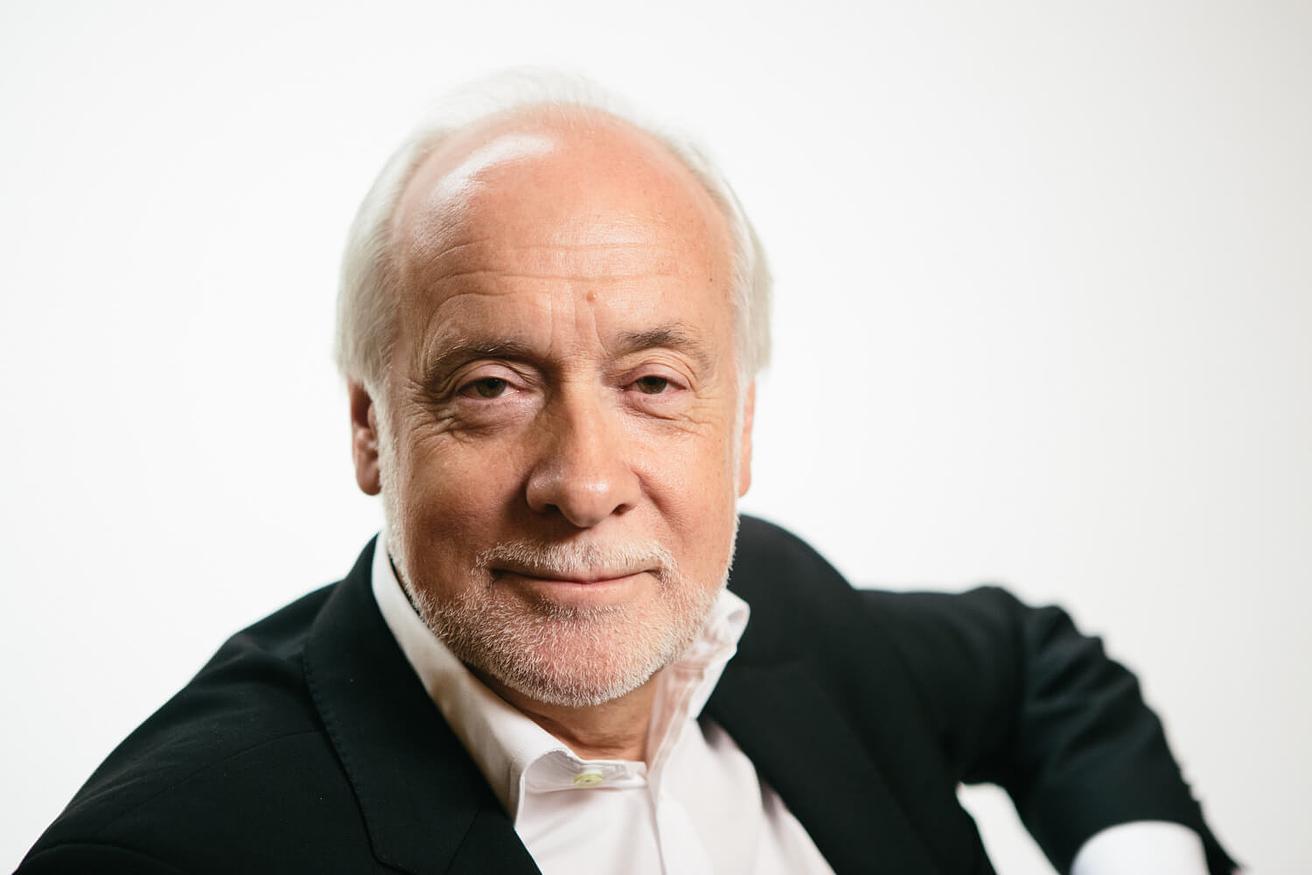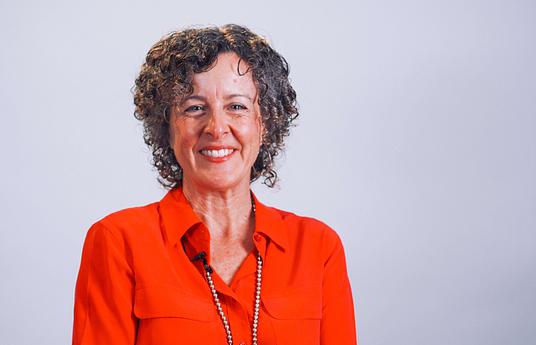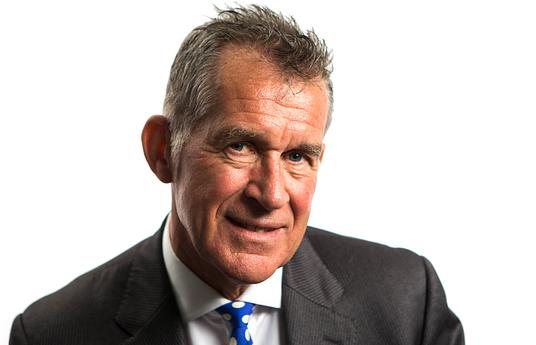Anthony Mackay
Anthony Mackay is CEO of the Centre for Strategic Education in Melbourne, Australia and Co Chair of the Global Education Leaders Partnership ( GELP ). He specialises in school and system leadership, improvement and innovation to promote education reform around the world.
Skills
|
What needs to change in education for the next 100 years? Let me answer this from experiencing and promoting the changes that are occurring now. The shape of the future of learning is already being influenced in a number of ways, including : First, there is the UN October 2015 Global Agreement that commits us to 'learning for all.' The new Sustainable Development Goals constitute a worldwide commitment to ensure that young people don’t simply have access to education but that they experience a quality education - that is, powerful and enabling learning for their lives. Secondly, we increasingly know more about how to design learning and learning environments, as systems and sub-systems, to ensure greater learning 'productivity.' If the first shaping influence is more about access, equity and excellence, then the second is more around efficiency, effectiveness and efficacy. Many other sectors have completely reinvented themselves and redesigned the way in which they go about their business. The learning business is in the phase of redesign and reinvention. If we are thinking forward, even to the next ten years, the enabling conditions for the future of learning are increasingly visible. Thirdly, we need to understand that learning is about ‘learning a living’. This is a life that is not just for oneself but for those with whom we share this planet. We are interdependent (with all living things) and we need a prosperous and sustainable world. 'Prosperity' will require a redefinition of how to recognise and realise the imperative of diversity and inclusiveness. 'Learning a living' strikes me as being the way we should be thinking about the next ten, fifty, 100 years. We want people to be able to learn in ways that support themselves, their families, their communities and a global community. |
What skills need to be taught at school?
We are now clearer than ever about what every young person should know and be able to do. Most people talk about this as being the combination of knowledge, skills and dispositions. We are having global conversations about the cognitive and non-cognitive areas of learning (there are many who resist the word non-cognitive). The question is whether we are seriously embracing what some call the soft skills, the so called non - cognitive domains .
Others refer to emotional and social skills, the personal and interpersonal. Whatever the language, it is clear that we need to attend to an expanded conception of skills and dispositions in addition to knowledge and understanding.
One increasingly shared way of referring to 21st Century competencies is to refer to the 'Six C’s.' The importance of being an active and informed citizen, is broadly recognised as paramount. This includes participating in your local, national, and international communities. The sense of being a global citizen is critically important to my earlier comments on prosperity and sustainability.
It is also clear that we are rediscovering (what generations before us have understood) that character and collaboration and communication are vitally important. In many ways these three C’s define what is essentially human. And if we are to be sustainable, critical thinking and creativity are imperative skills.
We understand that it is all of the six C's that constitute the skills to be developed in young people – and through lifelong learning.
How can we support learning?
There are a few things that have changed. The first thing is we need to know a lot more about learning, and neuroscience, and the learning sciences are helping us enormously in understanding the nature of learning and the learning process.
Just to give a couple of examples: we know that in fact the young person, the learner, needs to be absolutely at the centre of our work. So a focus on the learner, the entry point of the learner, their prior knowledge, knowing that in fact it’s going to be a question of their motivations and their emotions that are going to trigger successful learning. Knowing that learning is obviously an activity that requires interaction, it's hugely social and therefore we need to think about that in what we arrange for the learning environment. Understanding that the assessment of young people, the progress they are making in their learning, is central.
We might come back to the question about assessment later, but we're talking about progress on a learning continuum within a particular area of activity and to be able to identify exactly where that young person is growing and developing. How can I assess that? How I can intervene in order to support their work further? So it strikes me that when we're talking now about learning we know a lot more through the learning sciences in particular, and we'll know a lot more in twenty, fifty, 100 years. So that's a very important part.
Learning analytics, you’re hearing a lot more than about the way in which we can use data to support us, in helping young people to make progress. So this is not something where we just hope and pray. We know it's an activity and an endeavor that can really help young people to move from where they are to a deeper level of learning. And a lot of people are talking about new pedagogies for deep learning, and they're saying that you can't do this without enrolling the help of powerful technology. So enabling technology is going to help us.
To think about the learning sciences, to think about the way in which analytics are going to help us, to think about the way in which technology is going to help us. That is a huge shift I think that then gives us half a chance of doing what I was saying before, that is meeting the needs of all learners.
Teachers
What do you feel the role of the teacher is?
Some might argue that educators have for too long held onto a particular kind of professional practice, conduct and role. The role of the teacher is changing – and it is influenced by your jurisdiction, the context and the culture in which you are working, the expectations that are placed upon you, and the learning environment in which you are operating. What is clear is that educators are redesigning the way in which they are going about their work with young people.
There are expert practitioners with content and pedagogical knowledge. They combine with other educators, fellow professionals and with others who provide support and assistance. In many learning environments there is an increasing shared responsibility amongst educators, with distributed roles and responsibilities, including a range of people who are occupying new roles in the support of learning.
The role of the teacher is increasingly seen as guiding and supporting a personalised approach to learning. To respond to and support each young person’s learning needs over stages of learning, from the early years to adulthood, requires much more than individual teachers in separate class rooms. We are talking about an educator profession that will be working collaboratively, building social capital, and embracing the need to share responsibility with many others who can provide learning support.
In addition to heightened levels of collaboration within and between professionals (health , family services, justice, employment et al,) and between the profession and other learning mentors, coaches and technical supporters - partnerships with the full range of 'players' in education is being embraced.
These partnerships have always included parents and their local communities. However there is increasing focus on partnerships with the corporate sector, the not for profit sector, philanthropists, and social entrepreneurs. All of these 'agents' are becoming engaged in the learning game. Further there is the emergence of open learning systems (ecosystems) with new providers, involving different scenarios for the future of the teaching profession. This will involve the challenge of creating our preferred futures.
Learning in short is a shared responsibility. Whilst the teaching profession is vital and should continue to provide leadership, we are increasingly thinking about how we partner and collaborate with others in order to ensure that every young person can learn in powerful and continuous ways.
Assessment
What are your views on PISA?
The worldwide debate about PISA for me rests upon this point: it's misunderstood in terms of the claims that people make for it, or indeed the critique.
So let's just be clear that we are talking in PISA about particular measurements in particular discipline areas, and we are talking about that in an applied sense applied to particular problems, whether it's literacy, numeracy, science and of course the other range of activities that come under the PISA umbrella. Clearly, that is one part of learning. Nobody is pretending that PISA is the whole of an education worth having, and OECD would never claim that. But OECD would claim that it's done two things: one, it's been able to show that (and without PISA we couldn't have done this), it's possible to have a learning system, even on those metrics, that can achieve both excellence and equity.
So, for those people who know this work so well, they immediately think of the top righthand quadrant, and we have an understanding that it is possible to have a learning system that can achieve both excellence and equity on a particular set of metrics.
But PISA is also embracing the new areas that people are valuing whether it be problem solving in a digital environment with collaboration, or whether it be creativity or the importance of global competence.
Environments
What would be the best learning environment?
Let me be clear about a learning environment. I think it operates at multiple levels. We've just been completing a major international study through OECD called 'Innovative Learning Environments' and we have some fantastic examples of creative, vibrant, amazing learning environments of young people, actively engaged in real work, applying that work, having real audiences and consumers of their products and services.
Of course this varies from early childhood through the stages or ages, but in many ways now we are seeing learners combining together across age groups. And so we have learning environments that are like schools, there are a lot that are not like schools in the way in which we might have thought about it. If I use the word 'school' now, I want to think about it in multiple ways. And I think some of that is technology charged, some of it does not rely upon that level of sophistication. But in addition, there are other levels of learning environments now. We've got systems and subsystems that we have been talking about. And my reference to an ecosystem was to say, can we now see learning environments as being the places where, going back to the opening question that you asked me, we are trying to nurture, grow and develop learners? And can we have environments that are really supportive of young people?
Leadership
Should government have a role in educational changes?
I think this is really a question of the way in which you think about a future learning system. So, let me suggest to you that more and more people are saying that learning, as I have indicated, is a shared responsibility. Assume that in fact we know more about the vision, the task; that is what we see as being an education worth having. Let's say that there's an agreement around that, and argue that this will require building the capacity of not only the teaching profession, but all of those who are going to support us in the learning game, and primarily young people, their parents and their communities. This is very much a collective effort.
And let's also remember that the learning that we are talking about now is both formal and informal. So this is not contained to a particular time or place. It's not just a technology argument about anytime, anywhere, it's an understanding that those that are demanding learning have now the opportunity to be able to access that through multiple providers. So, it's a question about the existing providers thinking how they can do that work in powerful ways. It's also about embracing new providers of learning opportunities for young people and thinking about that in both the formal and informal sense.
But you asked me the question about government, so I'll come to that. I'm saying let's be clear about the nature and the purpose of the work, let's be clear about the role of the profession, the role of schools as we know them, of new learning environments and new providers. Then the question is: how do you create the conditions for a very healthy ecosystem for learning? In other words, multiple species, a healthy environment where we can have all of the collective effort that we are talking about, where we can have innovation, where we are seeing new ways of being able to do this work.
The question is, how can government support that work? If you think about government as being less the provider and the regulator, and more the enabler and the broker then you get a sense of how you can create healthy ecosystems of learning. It's not just government, it’s the authorising environment that supports and enables this work. Government has to also think about the way in which the community, the public, the media, the teacher unions, the corporate sector - all of those people are potentially enablers of (or they could actually make things more difficult), the kind of learning systems that we desire. So it is a big question about government, but the question is even bigger.
The next 100 years
The next 100 years of Finnish education should... firstly, ensure that all young people are learning in ways that serve our twin goals of excellence and equity.
Secondly, that Finnish education in 100 years is going to be one where I think we see young people learning in ways that are continuous, seamless, part of their everyday lives. And they will be in and out of formal and informal learning in order to ensure that they are constantly preparing themselves for new challenges, new opportunities.
Thirdly, I think there will be a sense of productivity in the way in which we think about learning in Finland in 100 years time. We do now. But there will also be enormous passion and joy associated with this learning.
And ultimately it will be learning that serves simultaneously your own growth and development and those with whom you live, with whom you work, and those whose lives you have an ambition to influence in the most positive way – to promote a meaningful and sustainable future for us all.





